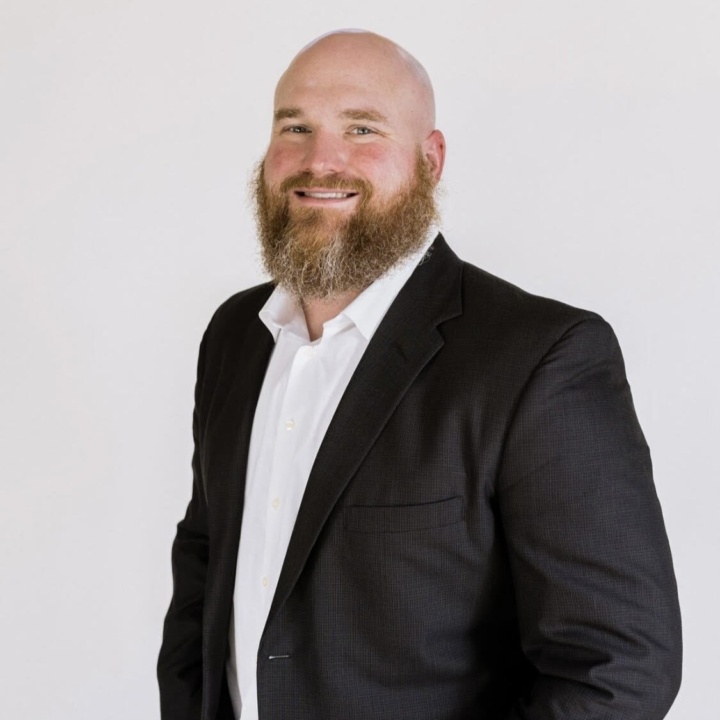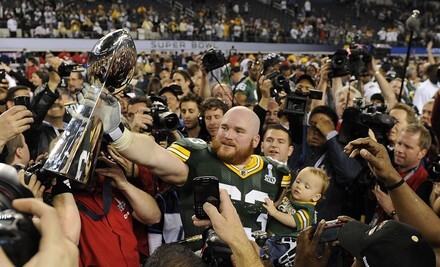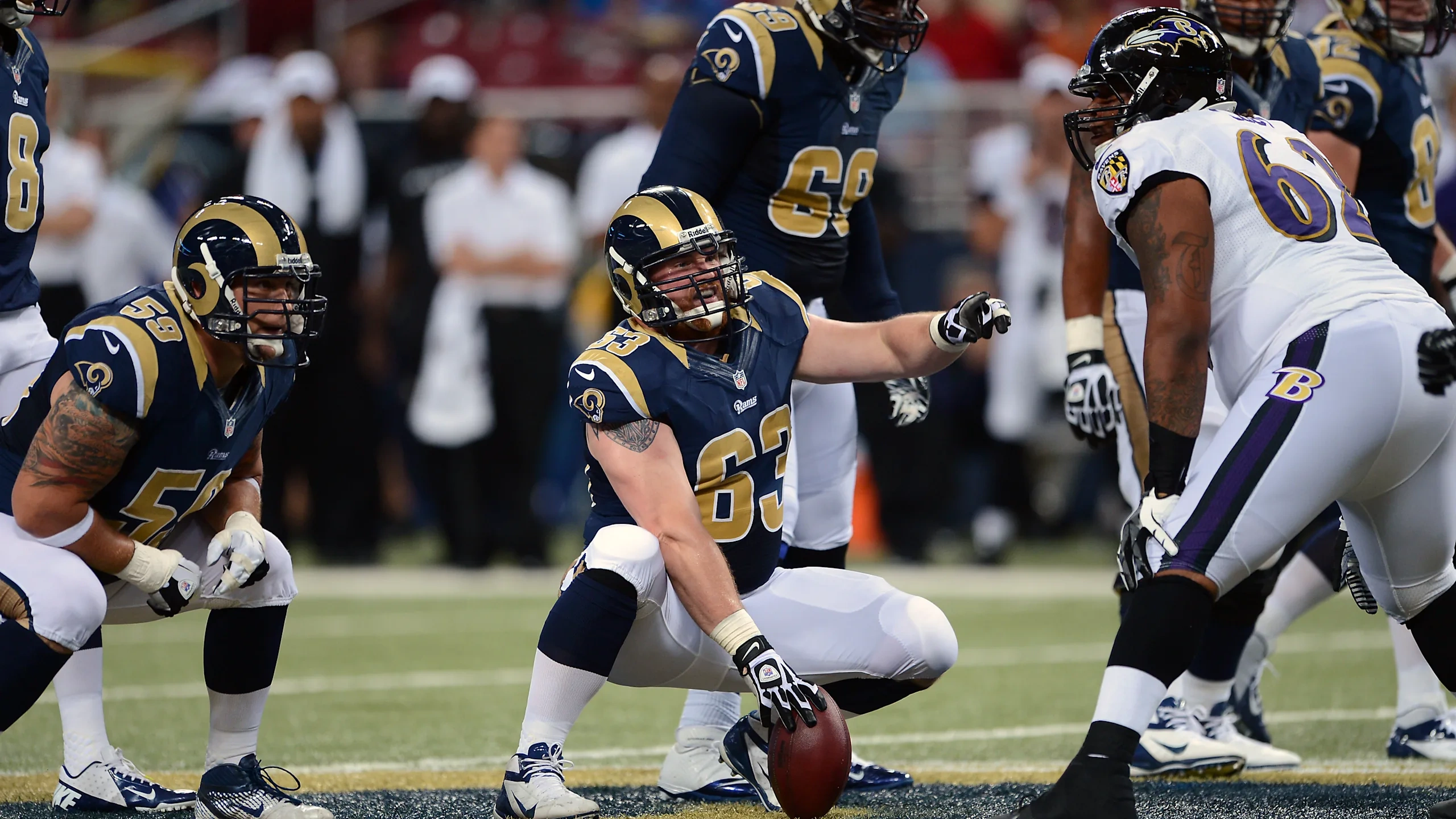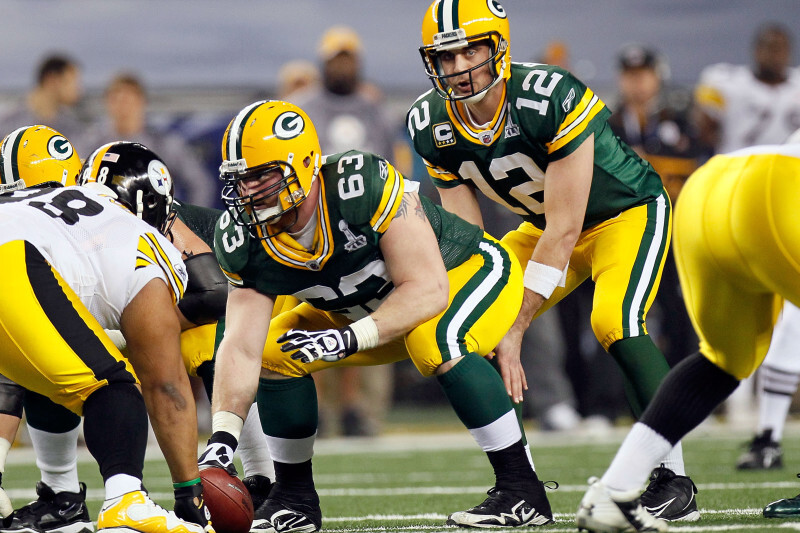
Catching Up with Former Player Rep: Scott Wells
We caught up with eleven-year NFL veteran Scott Wells. We discussed his life after football, his experience being an NFLPA Player Representative and Executive Committee member, and his transition into his new role as Player Director at the NFLPA. Scott was a member of the Tennessee Volunteers football program before being drafted in 2004 by the Green Bay Packers. During his time in the league he became a Super Bowl XLV champion and a pro-bowler while with the Packers and also played three seasons with the Saint Louis Rams.

What inspired you to become a Player Rep?
I got into it late. I became an alternate in year eight. I was a rep in year 10 and then I was on the EC in year 11 and one year of retirement. What got me was, I had strong reps in Green Bay when I was there for eight years. They always did a good job of communicating exactly the benefits of being in the union, what the union has fought for, where we once were, where we are, and where we're trying to get to. I've got a passion for history, so that's kind of what talks to me. Being able to see progress and actually make it tangible. I can see this is where we were, because I knew the stories of Mackey and Reggie White. I didn't really fully understand the part the union played. I had heard the story of the strike and the scabs and the, the movie they made, The Replacements, that was kind of making a spoof of that, but I didn't really know the details. I was able, through the Player Directors that would come in with Lester and Don and Ernie Conwell at the time, to have some good conversations sitting down in the dining hall and asking questions. It was lighthearted, but it was informative. I was a late draft pick, I was cut, I was put on the practice squad, I fired my first agent. I had to get advice from the union on how to handle it when he tried to sue me. It was just that good, constant communication of alright, we have somebody in our corner fighting for us to make sure that we have the help and the support that we need. That really sparked my interest early and ultimately pushed me into pursuing becoming a rep.
Why should more players look to get involved/be active within the NFLPA?
I always say it's better to know what benefits and services there are before you need them than trying to find them in a moment of crisis. It's always better to be proactive than reactive. The longer you live life and the more experiences you go through, the more that's driven home and proven true. But I feel like that's part of the experience that those of us who were blessed with a long career and have transitioned out can kind of pour back into the young guys is it's always better to be prepared ahead of time. It's kind of like having insurance, you have it and you hope you never need it, but when you need it, you're glad you have it. So that to me is knowledge of the benefits and services that the PA offers. It's always better to know what's there and to be involved early to stay on top of it, to stay educated because those careers in the NFL are so brief. Even the guys that played 10 years, that's a very small percentage of your working life. The average career being three years really shows that most guys are going to retire in their mid-twenties or early twenties. So, you've got a lot of working life to live. It's always good to know these are my benefits, these are what has been fought for me. This is how the previous generations left this amazing sport better for me and I would love to do the same and pay for it and leave it better for the next generation.
What’s a piece of advice that you wish you had early in your career?
Personally, I was so focused on making it and constantly paranoid about who they were bringing in. I was barely drafted, cut, practice squad, brought back. I think at one time I counted eight years, they brought in nine different centers to try to push me out. I was constantly aware of how unique that opportunity was and a whole lot of other people out there trying to take advantage of it. My advice would be in the midst of all that stress and anxiety, don't take for granted the moment and enjoy it. I've talked to my wife since then, even after winning the Super Bowl, I don't know that I fully took time to enjoy it in the moment. I was so focused on the task at hand that I didn't take time to look around and smell the roses. That would be the biggest thing for me is that you stay focused on the end game, the big picture, the ultimate goal, but at the same time, enjoy the daily successes and don't minimize those just because they're not the ultimate success you're chasing.

What is a piece of advice that you have for players transitioning out of football?
Don't be afraid to use your network. We are all blessed with working in a locker room where you have a massive network of support in that locker room and guys that are going to be doing the same thing you're going to be doing at some point as far as transitioning to their next career move. Stay in touch with those guys, stay in touch with anybody you had a good relationship within the organization and continue to build that relationship even post career.
Can you explain a little bit about your role here at the NFLPA as a Player Director?
A big piece of it is obviously availability. We are to be available to the players, to our membership, and make sure that we are knowledgeable about the CBA, the rights, the services, etc. That way when each unique situation presents itself, when a player reaches out, we know 1) how to answer the question and 2) if we don't know the answer, we know who to put them in contact with within the PA to find the right answer or the service that they need. 1) is being aware of what's needed and 2) is being educated on who to connect them to or what service to connect them to and how to answer questions as they come up. That's a big educational piece as well. For me, after spending eight or nine years post NFL as a teacher, I think that's something that I hope to do well with, as far as being able to educate the players on those services and benefits that they have and the importance of staying involved, as well as just an open line of communication on where they want to be and how we get there. That's kind of a big picture part of it.
What led you to pursue your new role as a Player Director?
I've always had that itching to stay involved with the PA and the cause. I have six children at home and my oldest, I've always had this dream of coaching him through football and wrestling. And that's what I did really, while I was teaching. I was the head wrestling coach and the offensive line coach at my alma mater here at Brentwood Academy here in middle Tennessee. I coached my oldest from seventh grade through 12th grade and was able to accomplish those things, and that is really one of the big things that kept me from getting more involved with the PA post-playing career. Once he graduated, I coached for one more year and then decided that I needed a career change. That was enough for me. I've got five more kids and I'm helping out at the local high school where my youngest is playing, but not in a full-time role, obviously. That's kind of what prevented me from jumping in with both feet into a job with the NFLPA early on. But then as the opportunity presented itself again, I submitted my resume, went through the interview process and was fortunate that they chose me.

How have you applied the lessons you learned playing football to your post-playing career?
Work ethic is a big one. In football, I've always thought the ones who are able to find pleasure in the grind of the NFL are the ones that tend to have longer careers. It's tough. You're putting in long days, a lot of hours. It's a long and grueling season, physically and mentally. You're being tested on every level and then you have your personal life at the same time that's going on because just because you step on the field on game day doesn't mean everything that's going on at home stops. So, for me personally, it's that work ethic and it's respecting the grind and understanding the process. That really helped me transition out because even coming out and going into a teaching job, I had not taught before. It can be overwhelming if you don't know how to take it day by day again, with a big picture perspective of this is where I want to be and this is what I need to do today to get me one step closer to that goal. To me, that's all my career in football was. We want to win the championship. What do I need to do to get there? What do I need to do today to help me reach that goal? That's to me the biggest lesson that's carried over into working outside of playing in the NFL.
What does the NFLPA Fraternity mean to you?
I would say when you're playing you don't really realize how special that opportunity is because you're so focused on the task at hand and staying there, that when you have been away from the game and you have time to reflect, you realize exactly how difficult it is to do what you did and how select that group is, which to me adds to the idea of the NFLPA Fraternity. These are some of the elite of the elite that were able to accomplish some pretty special things and I'm part of it. I try really hard not to live in the past, but at the same time, I like to respect where I've come from and the journey that I've been on that has led me to where I'm at now, and part of being part of that fraternity is a big piece of that. And looking around and seeing other people like you in the sense that they were able to sacrifice and put in the time and the effort and take advantage of their opportunity when they got it. There are a lot of people that put in the time and the effort, they just didn't get the opportunity. So being able to see people that everything seemed to come together at the right time, and they did exactly what they needed to do to find success, it is pretty special to look back and see you're part of that group.